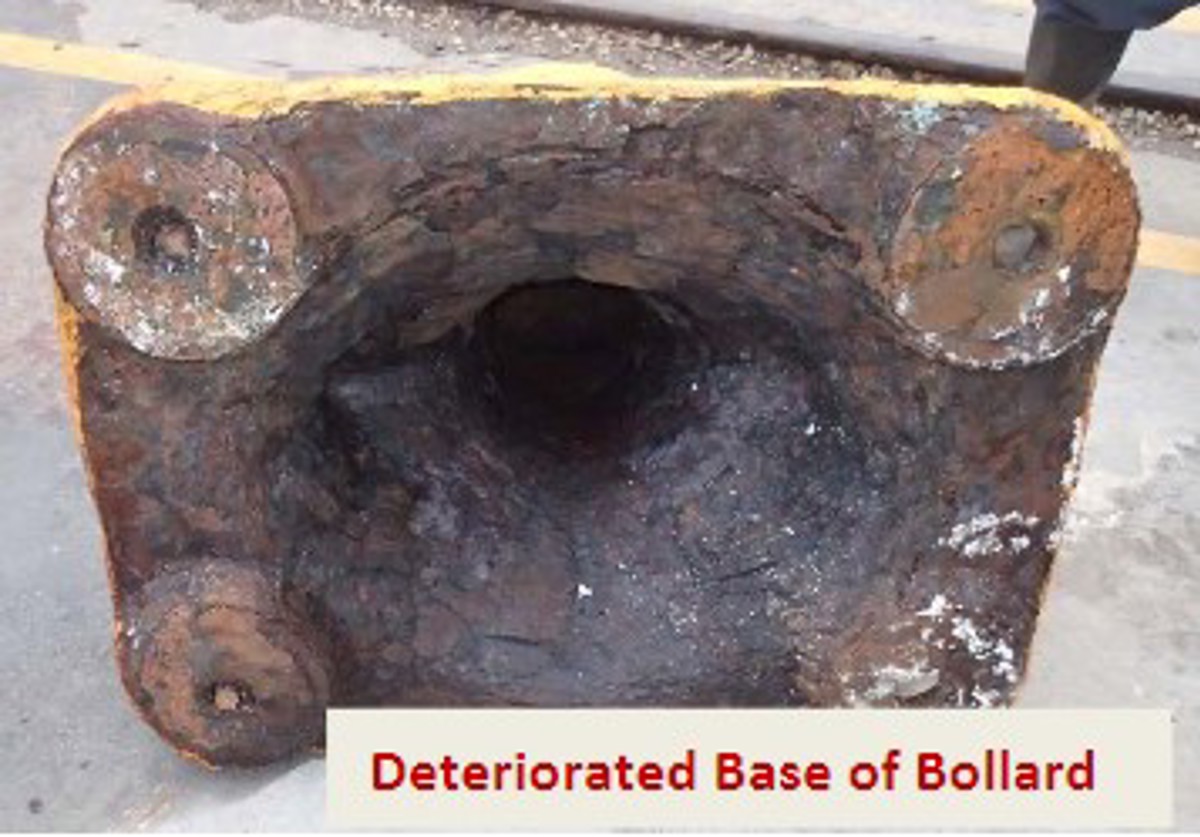USCG: bollard failures at marine facilities
- Safety Flash
- Published on 20 July 2018
- Generated on 23 February 2026
- IMCA SF 15/18
- 1 minute read
Jump to:
The United States Coast Guard (USCG) has published Safety Alert 06-18 entitled Don’t Let Your Vessel Get Underway Unexpectedly, regarding bollard failures at marine facilities.
The alert covers recent shore side marine bollard failures whereby moored vessels were cast adrift. In some cases, this resulted in damage to the involved vessel, as well as other nearby vessels and shore side structures. Thankfully, there were no related injuries or deaths.
What went wrong? What were the causes?
Amongst other issues highlighted were:
- Rotted pilings.
- Possible pre-existing fractures.
- Failure of base castings.
- Deterioration of base of bollards.

What actions were taken? What lessons were learned?
The USCG strongly recommended “that facility owners and operators take steps to develop a routine inspection program for bollards and other mooring equipment. Furthermore, vessel personnel should report discoveries of apparently deficient shore side mooring equipment to facility managers.”
The alert can be found on the USCG website.
Related Safety Flashes
-
IMCA SF 22/15
15 December 2015
-
IMCA SF 12/01
2 October 2001
IMCA Safety Flashes summarise key safety matters and incidents, allowing lessons to be more easily learnt for the benefit of the entire offshore industry.
The effectiveness of the IMCA Safety Flash system depends on the industry sharing information and so avoiding repeat incidents. Incidents are classified according to IOGP's Life Saving Rules.
All information is anonymised or sanitised, as appropriate, and warnings for graphic content included where possible.
IMCA makes every effort to ensure both the accuracy and reliability of the information shared, but is not be liable for any guidance and/or recommendation and/or statement herein contained.
The information contained in this document does not fulfil or replace any individual's or Member's legal, regulatory or other duties or obligations in respect of their operations. Individuals and Members remain solely responsible for the safe, lawful and proper conduct of their operations.
Share your safety incidents with IMCA online. Sign-up to receive Safety Flashes straight to your email.